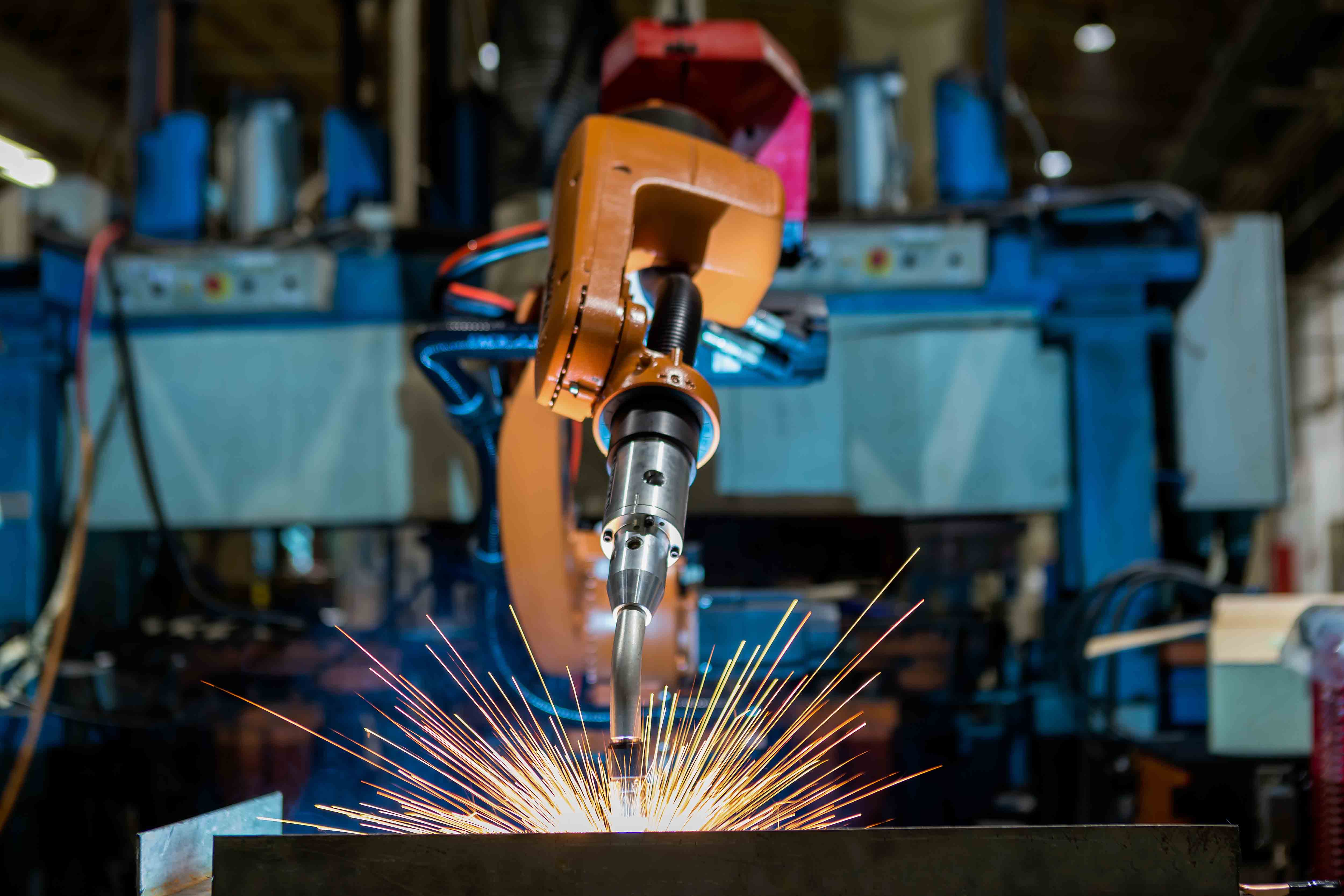

Metalworking Operations Move to Industry 4.0
By Grainger Editorial Staff 1/27/20


Many manufacturing companies are embracing the phenomenon known as Industry 4.0, and the metalworking industry is no exception. A growing number of metalworking operations are using technology that enables different manufacturing components to communicate with each other autonomously—but these operations remain in the minority. A 2018 Grainger survey revealed that only 27 percent of metalworking companies had implemented production monitoring and planning systems. Additionally, a 2018 report from the Information Technology & Innovation Foundation found that 77 percent of small U.S. manufacturers had no plans to implement Industry 4.0-enabling technologies by 2021.
Industry 4.0 is organized under a technology ecosystem known as the Internet of Things (IoT). The 2017 book Emerging Trends and Applications of the Internet of Things (edited by Petar Kocovic et al.) defines IoT as a “network of physical objects embedded with electronics, software, sensors and network connectivity, which enables these objects to collect and exchange data.” Below are a few ways metalworking operations can leverage the digitalization and networking capabilities of Industry 4.0.
Leveraging Data from Sensors
Data collection from sensors,and the analytics-driven decision-making process this enables,is one of the first steps towards enjoying the benefits of Industry 4.0, according to Global Trade Magazine. Collecting sensor data from enterprise and production systems allows manufacturers to develop an accurate picture of how well processes are operating against their unique performance benchmarks. With this information, metalworking operations can respond to events almost instantly. For example, sensor-enabled smart tooling and workholding in metalworking factories can provide real-time feedback about problems like vibration back to machine controlling systems, according to SME, a nonprofit association that promotes and supports manufacturing. This alerts the system to adjustor notifies the relevant personnel to do so. According to an interview published in SME, most major metalworking manufacturers are focused on sensor technologies to optimize cutting conditions dynamically during manufacturing operations.
Sensor-derived data also allows manufacturers to predict machine failure, which helps increase machine efficiency and reduce downtime. Preventing failures can mean avoiding hundreds of thousands of dollars in losses for larger metalworking operations.
It's no longer the case that sensors are large and cumbersome. With the proliferation of Industry 4.0 across a variety of industries, sensors are now smaller, making it easier to install them in tooling, workholding and other processes. If you're looking to leverage data derived from sensors to support your metalworking operation, start by assessing where the sensors should be installed and which types of sensors make the most sense for your business.
Optimizing Supply Chains
The benefits of Industry 4.0 technology isn't limited to the four walls of the factory. It also enables metalworking operations to digitize and automate their supply chains, according to Global Trade Magazine. Plants and logistics providers connected via the Internet of Things can communicate with each other, with sensor systems providing up-to-date status information about the production process in realtime.
Advances in technology allow ever-smaller cargo units to be tracked right down to individual pallets and cargo boxincluding the location and condition of the cargo. Analysis of this data allows metalworking operations to optimize their supply chains, enabling efficient material flows and more responsive production tempos, according to New Equipment Digest.
The key to unlocking the insights embedded in data is to create a set of control limits at the business and production levels, according to SME. Breaches in those parameters—which could be related to vibration, temperature, humidity, power consumption or machine part performance—trigger your systems and/or your engineers to make the required adjustments.
When it comes to Industry 4.0, there are many different trends to keep an eye on, but leveraging automation technology in the right way will be essential for metalworking operations to stay competitive. With technology costs decreasing and more efficient and flexible manufacturing solutions taking charge, U.S. metalworking companies should consider adopting Industry 4.0 intelligent manufacturing techniques. The efficiencies that these technologies and methodologies promote will help reduce costs and boost the bottom line.
Learn more about Grainger metalworking products and services.
![]()
The information contained in this article is intended for general information purposes only and is based on information available as of the initial date of publication. No representation is made that the information or references are complete or remain current. This article is not a substitute for review of current applicable government regulations, industry standards, or other standards specific to your business and/or activities and should not be construed as legal advice or opinion. Readers with specific questions should refer to the applicable standards or consult with an attorney.






